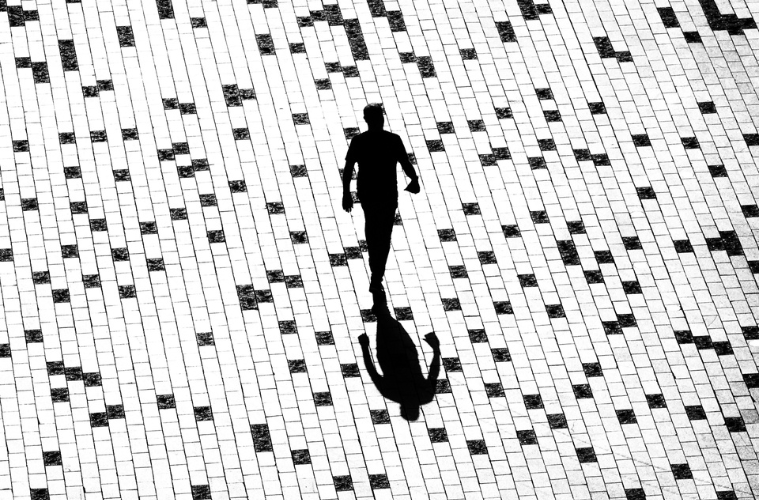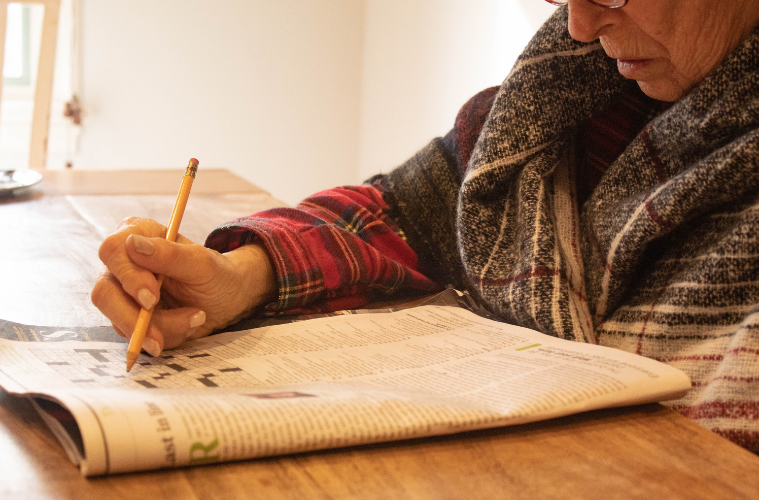Do crosswords make you smarter? How the word game can boost brain health (original) (raw)
Do crosswords make you smarter? Hobbyists like me who play the word game daily (including the Express Mini!) as a steadfast morning ritual would like the answer to be a vehement yes.
It’s hardly surprising that people who play word-based puzzles tend to do well when tested on verbal skills, but it doesn’t stop there. Even though there is no conclusive evidence to confirm that crosswords make you smarter, there is plenty that indicates that being a regular at the puzzle flexes your brain and improves mental wellness.

Experts suggest that playing crosswords can help reduce the risks of dementia with aging, assists in tackling anxiety, and leaves you with a positive sense of accomplishment that can boost mental health in the short-term.
 Finishing a quick morning goal can add a stride to your step. (Photo by Michel Groleau)
Finishing a quick morning goal can add a stride to your step. (Photo by Michel Groleau)
“Many studies over the past several years have shown the benefits of crosswords. People who do them on a routine basis, say, at least four times a week for a long time, are likely to experience lesser cognitive decline,” says Dr Sudhir Kumar, Neurologist, Apollo Hospitals, Hyderabad.
“But, there should be some level of difficulty, which makes people think and analyse,” he adds.
How crosswords may help keep dementia & Alzheimer’s at bay, improve memory
A study published in the New England Journal of Medicine Evidence in 2022 examined how different puzzles and games could improve memory in those with mild cognitive impairment. Participants were asked to take up either one of the two – web-based cognitive games (like tasks focusing on memory, matching, spatial recognition, and processing speed) or crossword puzzles of medium difficulty.
After 12 weeks, scientists found that participants who had been assigned crosswords showed better results on a number of assessment tests, including the Alzheimer’s Disease Assessment Scale-Cognitive score.
Story continues below this ad
Furthermore, the researchers found that the hippocampus (an area of the brain that usually shrinks with cognitive decline) showed less reduction in volume for this group when measured using MRI brain scans.
“Crosswords and word games primarily target areas of the brain associated with language processing and memory. By exercising these brain networks, they can help improve neural connections, strengthen cognitive abilities, and potentially reduce the risk of dementia and age-related mental decline,” says Dr Parth Lalcheta, Consultant Neuro and Spine Surgeon, HCG Hospital, Rajkot.
 If played often, crosswords may combat the cognitive clouding of old age.
If played often, crosswords may combat the cognitive clouding of old age.
An important brain function that the guessing-based newspaper staple targets is the memory.
“The hippocampus is an area of the brain concerned with cognition and memory. It stores episodes and events from immediate memory. In addition, multiple parts of the brain are involved in storing long-term memory, like the visual memory is stored in the occipital lobe. Crosswords first target the hippocampus, but based on the clues, they can also ask you to recall from the long-term memory,” Dr Kumar explains.
Story continues below this ad
Crosswords get you to think ‘differently’, build a community
Mani Kadayam, an advertising professional, has been doing crosswords for nearly three decades now. He spends about 30 minutes solving the puzzle 2-3 times a week.
“I have moved from doing easy crosswords to cryptic ones,” shares Kadayam, who is 50. “For me, personally, now, it’s not as much about expanding my vocabulary but more about thinking differently. Once you understand that the words themselves are easy but that the clues are often deceptive, it’s about solving them creatively. It helps you think laterally. It helps you form connections and associations,” he says.
My own fascination with crosswords began with the New York Times mini at the age of 18. As an avid reader and writer, I had always liked word games. But with the NYT mini, I experienced a challenge. While I was able to decipher the customary wordplay in the clues, I struggled with the Western references that were not a usual part of my vocabulary. And that is what kept me hooked.
I began doing the crossword daily in competition with my sister, who was studying in the US, and was therefore better at decoding the more American ideas. Five years later, I’m not only adept at grasping their lingo, but the game has kept me and my sister close through our separation. We do the mini crossword every day, without fail, around the same time, and share our scores: me during my morning, she at her night. Her friends and my friends have joined in our little ritual too, making our crossword community bigger.
Story continues below this ad
Navigating through the black-and-white grid has become a social activity for many others like me. Kadayam, too, is part of online groups for crossword-players. “I now know a lot of people who set crosswords and do crosswords. There is a small community of people online, we have weekly clue-writing competitions and things like that,” he says.
“Collaborative solving majorly took off in the pandemic, as a way for people to be apart yet deeply engaged together,” writes Adrienne Raphel, author of Thinking Inside the Box: Adventures with Crosswords and the Puzzling People Who Can’t Live Without Them.
This trend of solving crosswords in groups already has a name: ‘collaborative cruciverbalism’, that is completing a crossword puzzle with other people, and without the help of technology, instead of doing it solo.
“There are three components that you should include in your daily routine to keep your brain fit, as per the WHO’s recommendations. Mental exercise, physical exercise, and social engagement,” says Dr Kumar. The crossword can help you check two of these.
Story continues below this ad
If nothing else, the crossword makes you feel smarter
As is the case with accomplishing any moderately challenging task, a sense of satisfaction descends upon you after solving the crossword – one which can elevate your mood for the rest of the day.
“There is a joy you get from solving crosswords. It makes you feel smarter, and it’s a whole lot of fun. It feels like you’ve spent your 15-20 minutes doing something good,” says Kadayam.
This positive feeling can even help combat anxiety.
A 2008 study by the University of Berkeley had demonstrated that word puzzles can rein in a restless psyche by activating the region of the brain that commands logical reasoning and concentration. “Poor concentration in anxious people is as much due to a slow response in the prefrontal cortex when they are engaged in undemanding pastimes,” the authors concluded.
 Completing mentally taxing tasks leads to a staggered sense of control often sought by the neurodivergent.
Completing mentally taxing tasks leads to a staggered sense of control often sought by the neurodivergent.
“Puzzles and word games divert attention away from stressors, promote relaxation, and provide a mental escape. Solving puzzles can create a meditative state, leading to reduced anxiety levels and an overall sense of calmness,” concurs Dr Lalcheta.
Story continues below this ad
“Plus, after you’ve solved a crossword, you feel a sense of happiness. It releases dopamine in the brain, which is the opposite of the kind of chemicals released in anxiety and depression,” Dr Kumar remarks.
Need I give you more reason to pick up The Indian Express’s new mini crossword for beginners?
📝Try them out here.